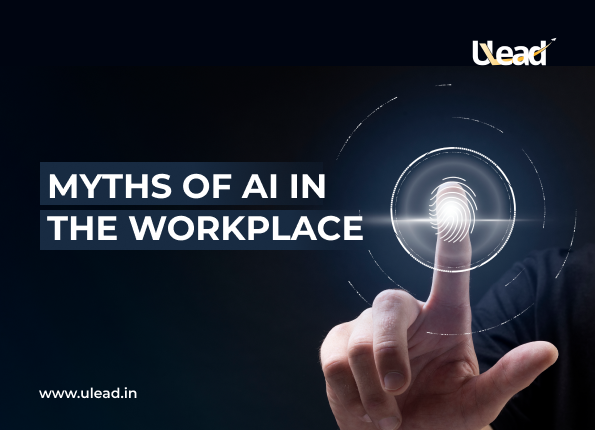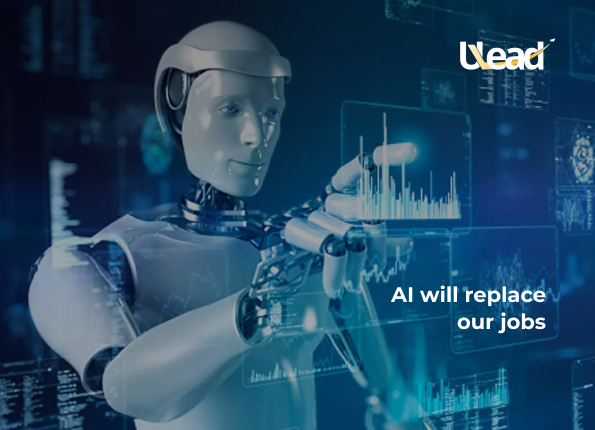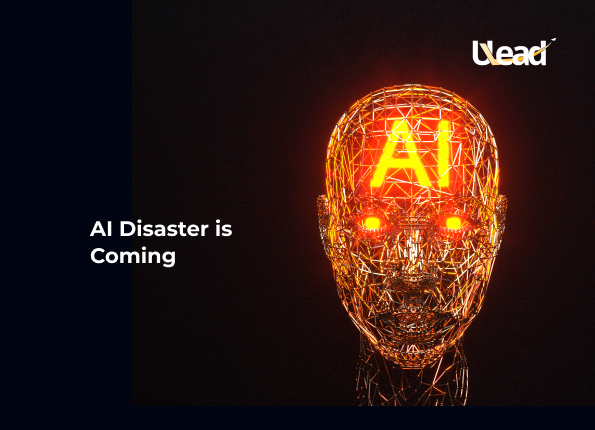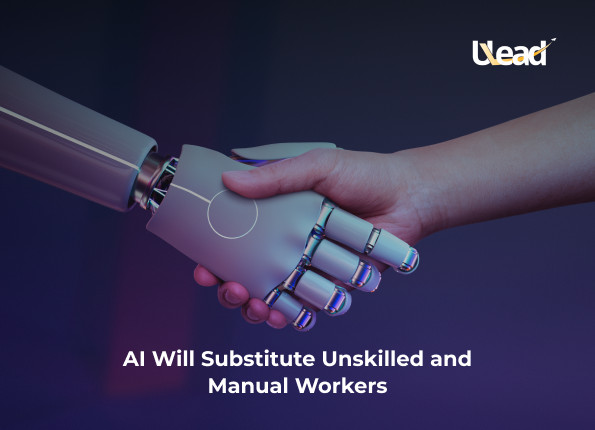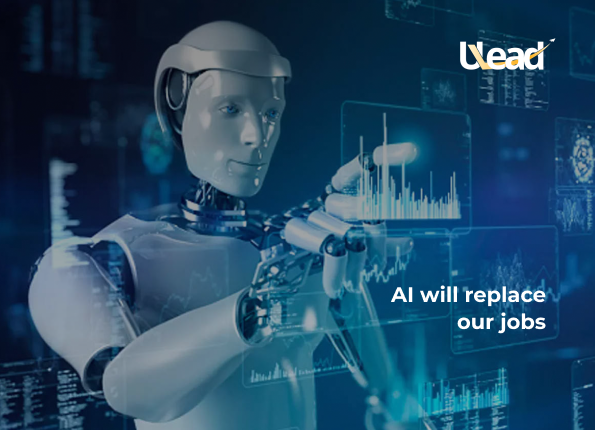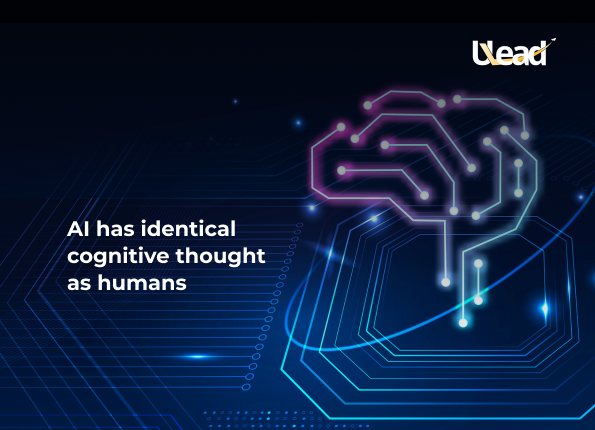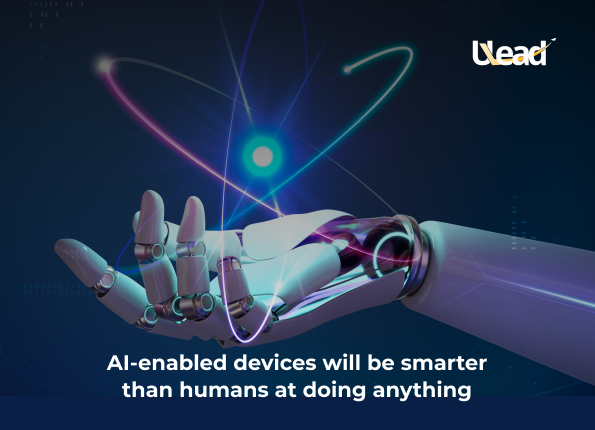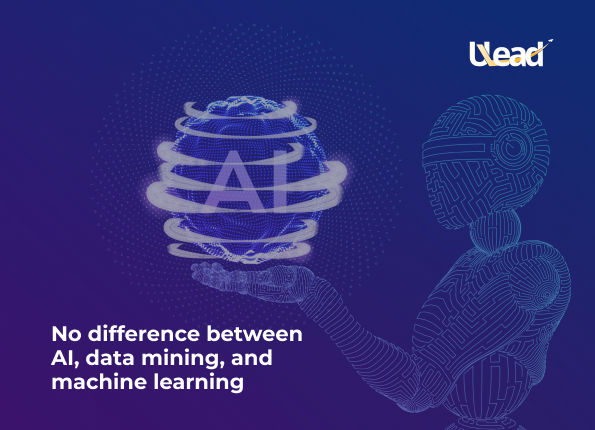Myths of AI in the Workplace -Expert Insight
AI is not driving mass unemployment, and it’s not as complex as you think. Let’s dig into how artificial intelligence is making the Workplace better.
Let’s be honest; technology has welcomed more jobs than it has caused the loss of employment for some people. But still, if you are updated with the latest news on technology, you must have heard the hot debate around AI. Moreover, it is said to increase unemployment rates with AI-enabled robots doing our jobs. Sounds believable, but it’s just a myth.
Undoubtedly, AI will alter the Workplace; however, the current attention on the topic has brought about many misconceptions about technology and its drawbacks.
This article will share 9 myths about AI in the Workplace. Are you ready?
Myth 1: “AI and robots are the same thing”
Most people think of Robots as AI, but they are two distinct things. Most AI technologies work in the background, and it’s not easy for a layman to detect the operations of AI. For instance, think about how Amazon product recommendations work.
On the other hand, robots handle specific, repetitive physical processes like traffic lights and vending machines.
Myth 2: “AI Disaster is Coming”
Many people are anxious that machines will become wiser to the extent that they will take over the world. We can’t deny this likelihood, but there is no proof that this will happen.
Besides, the user decides whether the technology is invaluable or a threat to human life. Think about nuclear power, while we can use it as a pure energy source, it can also be destructive to the environment.
Likewise, the thought that an AI apocalypse is coming is a delusion.
Myth 3: “AI Will Substitute Unskilled and Manual Workers”
Another myth is presented by the thought that AI will outcast human labour.
AI-enabled robots and equipment are handling work reserved for skilled and professional people such as lawyers, doctors, etc.
On the other hand, it focuses on limiting repetitive work. For example, in law, AI helps scan millions of documents, pulling out information relevant to current cases.
While in the medical field, machine learning is employed in x-rays, scans, etc. As you can see, both areas include complex procedures, and we can predict that machines will handle them better than humans.
Myth 4: “AI will replace our jobs”
Undoubtedly, introducing technology in the Workplace has turned the tables in labor and some industries. Many people are concerned that AI will replace human jobs, causing unemployment rates.
Think about the prior industrial revolutions that directed the change of the employment sphere from agricultural work to factories during the 19 century. All these transformations have never led to the loss of jobs. The number of jobs has remained uniform.
Business leaders like Elon Musk have announced their concern about AI taking over human jobs, but fortunately, there is no evidence to confirm that AI will cause mass unemployment rates.
A report suggests that AI will take over 1.8 million jobs and create 2.3 million new ones. Generally, AI-enabled robots will operate like assistants that respond to customer complaints, send emails, etc. Therefore, you can focus on other productive areas of the business.
Myth 5: “AI has identical cognitive thought as humans”
Sure, AI can handle complex data and perform tasks efficiently. However, technology cannot think like humans. The technology tracks the logic and datasets designed for it by humans to execute those tasks.
Myth 6: “AI-enabled devices will be smarter than humans at doing anything”
Generally, AI applications are divided into two categories, namely: specialized and generalized. Specialized AIs are designed to handle specific tasks in a particular domain where they are reasonable, like legal and medical.
Simultaneously, generalized AI’s are designed to handle various tasks, such as thinking of humans as generalized AI’s.
Sure, more intelligent AI’s exist, but they can only handle specific tasks (not truly generalized like humans). Supercomputers will become more intelligent than humans in doing anything is still a fallacy.
Myth 7: “No difference between AI, data mining, and machine learning”
If you are not much into the world of technology, you will find it challenging to comprehend the actual difference.
Artificial Intelligence is the ability of machines to process mined data to inform intelligent decisions that humans couldn’t.
On the other hand, machine learning is the driver of AI. The two work jointly to process data and make smart decisions.
One of the robots checks in guests at Henn-na Hotel Check here
How Artificial Intelligence (AI) is Transforming Your Workplace
Nowhere can Artificial Intelligence be mentioned without being escorted by other buzzwords like Big Data, the Internet of Things, Machine Lear, Virtually Reality, Augmented Reality, and more.
According to the reports, in 2017, Amazon sold more than 16.1 million AI-powered speaker devices. If you have ever bought anything on Amazon or you are an active user on Facebook, you must have experienced AI in your life. A hundred thousand chatbots aid brands on Facebook to reach its 1.69 billion users. AI is not new in the workplace and must have experienced AI technologies in modern offices. Likewise, 41% of brands are employing AI technologies in the workforce.
But many are still edgy about the adoption of AI in the Workplace. While some worries are understandable, some are just out of ignorance toward technology.
The road ahead
AI technology is growing at lightning speed. To remain in the market, top-performing brands have already adopted AI technologies in many sizes of their business.
Computers took over most workplace operations in the 3rd Industrial Revolution, and more jobs were created. AI will alter how we work, and there are many fears among entrepreneurs and employees. Therefore, the above points are just myths about AI whose evidence is yet to be confirmed.
Now ULead offers a paid online internship program for students to upskill themselves. We empower students to become industry-ready through courses and internships. Enroll now!

